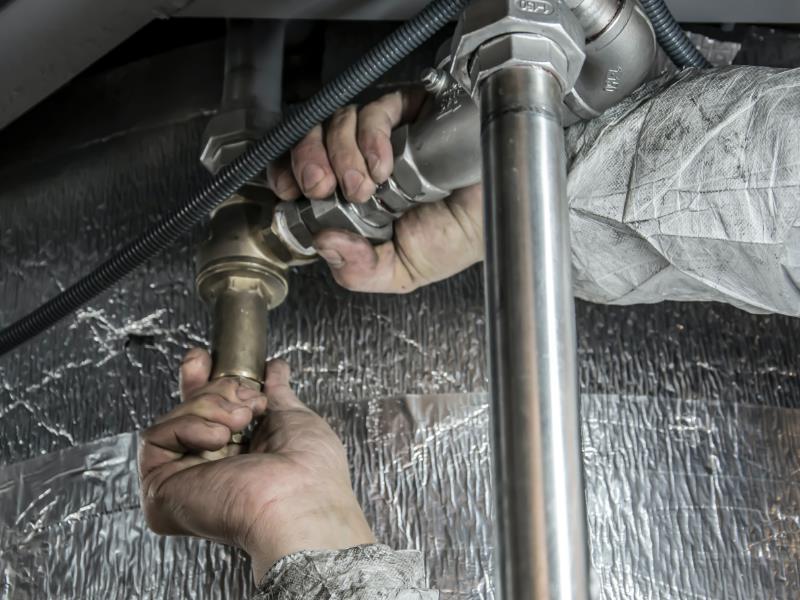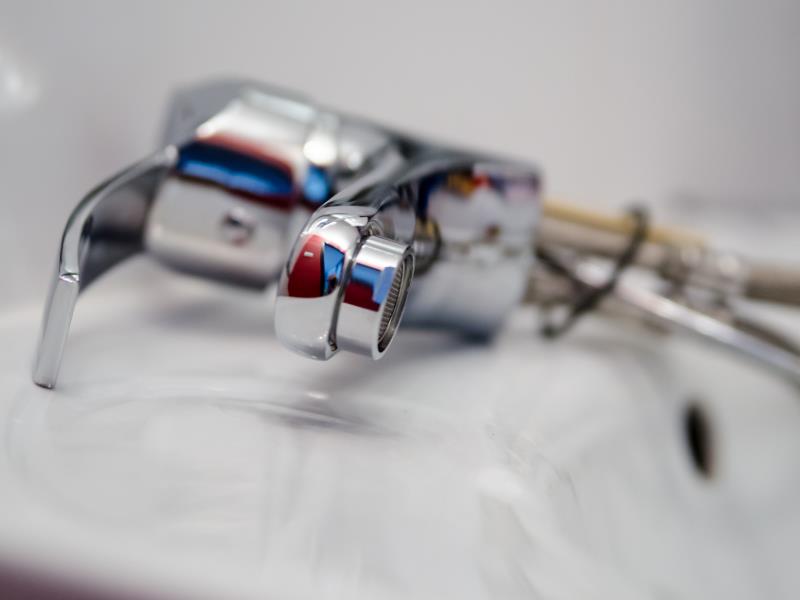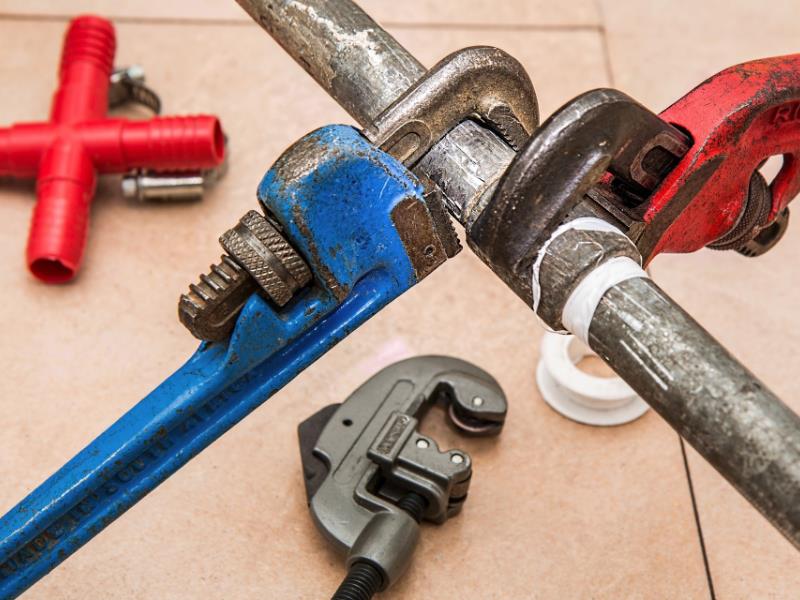Plumbers
Home / Wiki / PlumbersLast updated Wed 15 Dec 2021
A plumber is a professional that works with plumbing infrastructure, both maintaining existing systems and installing new ones. Plumbers are ubiquitous across the globe, and anywhere that plumbing systems exist, however basic, there will be accompanying plumbers that work to install and maintain those systems, whether that's a complex span of unionised workers, as you'd find here in Australia, or something more alike to an owner-operator setup such as you might find in a developing nation.

Assembling piping by hand
What Sort Of Work Does A Plumber Do?
Plumbers are responsible for a wide variety of plumbing work, which typically directly involves the installation or maintenance of plumbing systems. For instance, plumbers might need to review the layout of a building during the early planning stages to determine how best to arrange pipes, outlets, and vents, and they may need to mark where these fixtures will be passing through walls and other structures during a building's construction, allowing the construction team to leave space for the plumbing systems to be properly installed.
Installing plumbing systems is a broad field of work that covers many different jobs. Plumbers will need to measure, cut, bend, and thread pipes via a variety of power tools and machines, or by simply utilising manual labour, and they will also need to test those pipes for any leaks using gauges for both water and air pressure. Fortunately, most modern plumbers will join pipes via fairly advanced procedures, including compression and threaded fittings, solvent welds, crimps, and soldering methods, all of which produce relatively reliable joints that are typically air-tight.
Finally, once plumbing systems are installed, property owners will still require the advice of a plumber should these systems start to fail. It might be as simple as a minor leak under the kitchen sink, or it could be as severe as a failure in the water supply for an entire town; no matter what the problem, a plumber will be needed to accurately diagnose and fix the issue.
Where Might You See A Plumber Working?

A faucet that is in the middle of being dissasembled
Anywhere artificially-running water can be found, a plumber won't be far away. That includes any homes or businesses that utilise tap water, flush toilets, or need to dispose of any other sort of wastewater via a drainage system. Plumbers can also be found deep within infrastructure projects, helping control public access to water on a local or state level, and can even become rarely involved in federal projects. While both local and state-level plumbing projects can become incredibly widescale, going so far as to involve large dams and water reservoirs, federal projects will typically be smaller-scale and will involve federal property, such as airports or government buildings.
What Sort Of Specialisations Can A Plumber Have?
Plumbers will specialise in different fields depending on the work they are most likely to perform. For instance, a plumber that will typically work in the residential sector would be considered a residential plumber, while a plumber who services businesses and stores would be a commercial plumber. Service and repair plumbers exist as an intermediate option, as they are able to service both the residential and commercial sectors, but are typically only called for maintenance work, whereas both a residential plumber and a commercial plumber will be able to install new plumbing in their designated sector as well as maintaining previously-installed plumbing.
What Dangers Can Plumbers Face?
There are always dangers facing the tradespeople working in the construction industry, and plumbers are no exception. While most homes and properties shield the occupiers from all hazards related to electrocution, plumbers crawling about in the subfloor are offered very little of that protection, and likewise with any heating elements exposed within their worksite. The physical nature of their work also means they are susceptible to many common forms of injury, including sprains, cuts, fractures, and bruises, while they are also exposing their body to bacteria, dirt, and grime.

An exmaple of how pipe wrenches would be used during plumbing
In particular, a plumbers exposure to human waste can present a large threat to their health. Both chronic disease and mild illnesses can persist in waste for quite some time, which means plumbers may be unwittingly exposing themselves to a wide variety of illnesses at any given moment. As a result, many plumbers employ high levels of personal protection equipment, protecting them from the likes of polio, typhoid, hepatitis, and schistosomiasis, amongst others. In many developed nations, a combination of safety laws, regulations, and general access to healthcare help decrease the incidence of plumbers falling ill in this manner, though it is still common in a variety of developing nations.
Heidy Barbera
05 Dec 2025
Verified
I’m just a tenant at a rental property however I had Mitch come for 2 days to undertake some repair works! He was the most helpful, reliable and respectful person I have ever come to my house to do ... more
Rocky Scott
05 Dec 2025
Verified
THE GUY WAS VERY POLITE ,EFFECIENT, FAST AND STRAIGHT FORWARD , TOLD ME WHAT I NEEDED TO KNOW AND HE WAS GOING TO GET THE REALESTATE AUTHORITY BEFORE DOING ANY PROGRESS OR NOT ,HIS WORK ETHICS, MANNER... more
James Ogilvy
05 Dec 2025
Verified
We had the please of Mitch coming through to sort out a bunch of issues. His work is impeccable, and a genuinely great guy. Can not recommend highly enough!

We happily service all areas of Brisbane and beyond. Get in touch today.
And enjoy peace of mind with a dedicated team on call 24/7
